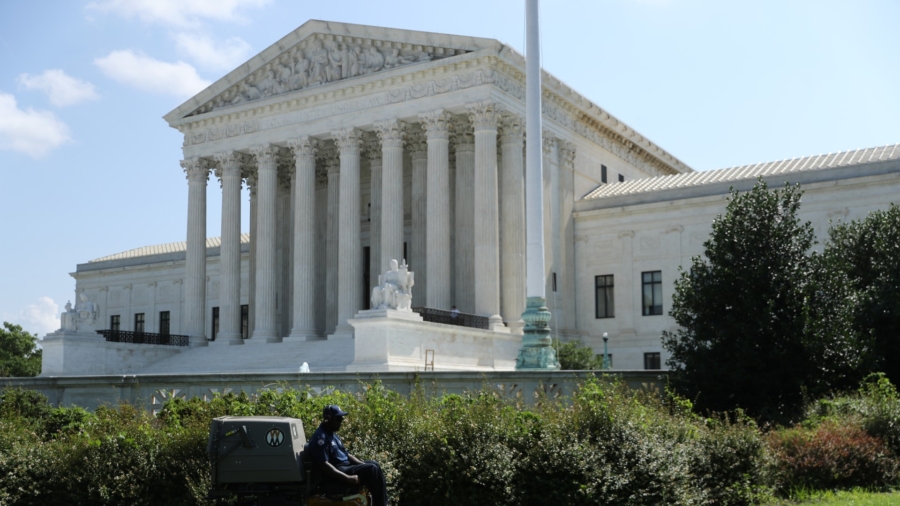The U.S. Supreme Court on Thursday ruled that much of eastern Oklahoma is Native American land for certain purposes, meaning that only federal authorities can lodge charges against Native Americans who commit serious alleged crimes in the area.
“Today we are asked whether the land these treaties promised remains an Indian reservation for purposes of federal criminal law,” Supreme Court Justice Neil Gorsuch wrote (pdf) in the 5-4 decision. “Because Congress has not said otherwise, we hold the government to its word,” he added.
The area in question encompasses a population of about 1.8 million people and nearly 20 million acres, including the Cherokee, Chickasaw, Choctaw, and Seminole nations, it was reported. Of those people, about 15 percent are of Native American descent.
The area also includes Tulsa, the city where President Donald Trump recently held a rally in June.
The majority opinion, written by Gorsuch, asserted that the Muscogee (Creek) Nation’s tribal reservation established by Congress in the 1800s remains in effect for federal laws. He said that it is the federal government that has jurisdiction to prosecute cases under the Major Crimes Act.
Gorsuch was joined by the four liberal justices on the Supreme Court: Ruth Bader Ginsburg, Stephen Breyer, Sonia Sotomayor, and Elena Kagan. Chief Justice John Roberts dissented along with fellow conservatives, Clarence Thomas, Samuel Alito, and Brett Kavanaugh.
With the move, the state of Oklahoma’s “ability to prosecute serious crimes will be hobbled and decades of past convictions could well be thrown out,” Roberts wrote in his dissent.
“On top of that, the Court has profoundly destabilized the governance of eastern Oklahoma,” Roberts wrote. “The decision today creates significant uncertainty for the State’s continuing authority over any area that touches Indian affairs, ranging from zoning and taxation to family and environmental law.”
Following the decision, the state of Oklahoma joined the Muscogee (Creek), Cherokee, Chickasaw, Choctaw, and Seminole nations in saying that they have made “progress toward an agreement to present to Congress and the U.S. Department of Justice addressing and resolving any significant jurisdictional issues raised by the U.S. Supreme Court’s decision” in the case, McGirt v. Oklahoma.
“The nations and the state are committed to ensuring that Jimcy McGirt, Patrick Murphy, and all other offenders face justice for the crimes for which they are accused. We have a shared commitment to maintaining public safety and long-term economic prosperity for the Nations and Oklahoma,” the joint statement read. “The nations and the state are committed to implementing a framework of shared jurisdiction that will preserve sovereign interests and rights to self-government while affirming jurisdictional understandings, procedures, laws, and regulations that support public safety, our economy, and private property rights. We will continue our work, confident that we can accomplish more together than any of us could alone.”
McGirt was convicted by an Oklahoma court for the assault of a 4-year-old child in 1997, and for that, he was sentenced to 1,000 years in prison, plus life, for the crimes. In court, he had argued that Oklahoma lacked the jurisdiction to prosecute his case because it took place in Creek Nation’s territory.
From The Epoch Times

